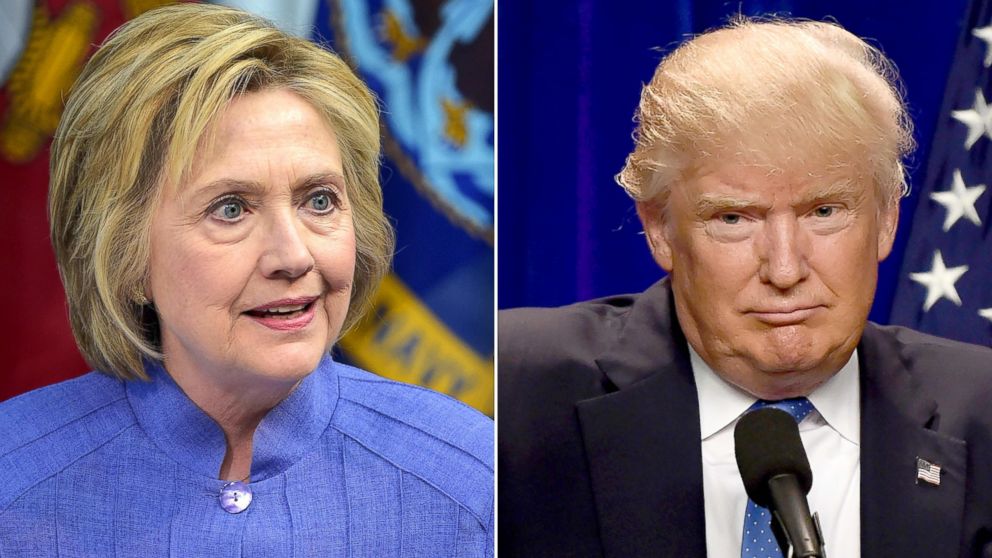COLUMN: Don't Listen to the Monopolies, Act Independently
ABC News political analyst Matt Dowd reflects on voting in a two-party system.

— -- "It's a binary choice."
Resting a bit after covering the two national political conventions, this phrase kept bouncing around in my head, as well as an uncomfortable feeling I had throughout that I just couldn't quite put my finger on.
That both parties, in each of their own ways, are emphasizing divisions, see success in dividing us, and react negatively to messages of unity.
At both the Democratic and Republican conventions, supporters of both nominees kept saying this phrase: "It's a binary choice. You have to choose between either Donald Trump or Hillary Clinton. Otherwise, you are throwing your vote away or helping the opposition."
Their point was that if you don't vote for Trump, then you are helping Hillary win; or, conversely, if you don't vote for Hillary, then you are helping Trump win.
Putting aside the fact that this doesn't sound democratic at all, and that our founding fathers feared the United States might default into just this kind of bitter partisanship, it is just the thing inefficient, entrenched monopolies lacking real customer service say to keep innovative new competitors out. It has happened throughout our country's history in nearly every facet of our economy.
Here in Texas a few decades ago, a young upstart airline decided to enter the marketplace to provide cheaper and better service. Southwest Airlines opened for business with little support, and was fought by the two dominant airlines in Texas, Braniff and American, every step of the way.
Today, Southwest is the most profitable domestic airline, and Braniff is out of business. Airline customers are much better off because Southwest stood up to the two legacy Texas airlines.
When innovators announced they intended to combine a cellphone and a computer into one device, the legacy phone and computer companies laughed at them, and then fought them every key moment along their growth. Today, many of those computer and phone companies are gone, and the hybrid companies are some of the most profitable in the world.
In case after case, when the "binary" choice is between broken legacy institutions who have monopolized power for years and who have ignored the demands of customers, the natural result is innovators arise to provide a better, more effective way. And the legacy institutions scream loud and wide and try to crush them.
Today, we see that in our political structures. And if we want to create a better way, then we have to eventually get beyond the binary, duopoly choice.
In our binary politics today, each party creates an us vs. them mentality. They underline and exacerbate demographic and geographic differences in their red vs. blue worlds: white vs. black, men vs. women, South vs. North, urban vs. rural, regular church attendees vs those not, and on and on.
This duality contributes to breaking us down as a united people, and undermines our democracy. And it take us away from our core values that bind us all together as Americans, humans and sons and daughters of God.
Nearly every major faith has spoken to the inherent problem with duality or us vs. them ego judgments. When we concentrate on our surface differences, and move away from the depth of the divine thst holds us as one, then we suffer individually and as a community.
As St. Paul said 2,000 years ago, "There is neither Jew nor Gentile, neither slave nor free, nor is there male and female..." We need new political institutions that appeal to what unites us, rather than that what divides us.
For years, I participated very successfully in the two-party duopoly as campaigns used divisions to win. We would not speak to the country as a whole, and only concentrate on a few target states, so that, as of today, the two presidential campaigns will ignore 85 percent of the country as they only talk to 15 percent in a few states. We built 50 percent-plus-1 coalitions of available demographic groups so that even when we won, it was almost impossible to govern because nearly half the country wasn't part of the conversation.
It is time we reject the messaging from the two major parties, and make choices in our own hearts that help bring the country together. If you don't feel good about either major party choice, then don't be shoved into choosing between what they describe as "the lesser of two evils.”
Make an independent and innovative choice that may not win this year, but over time will be successful in reuniting us as a country. We need independents to take back our country and unite us. It is only a binary choice if we listen to the duopoly.
There you have it.
Matthew Dowd is an ABC News analyst and special correspondent. Opinions expressed in this column do not necessarily reflect the views of ABC News.




